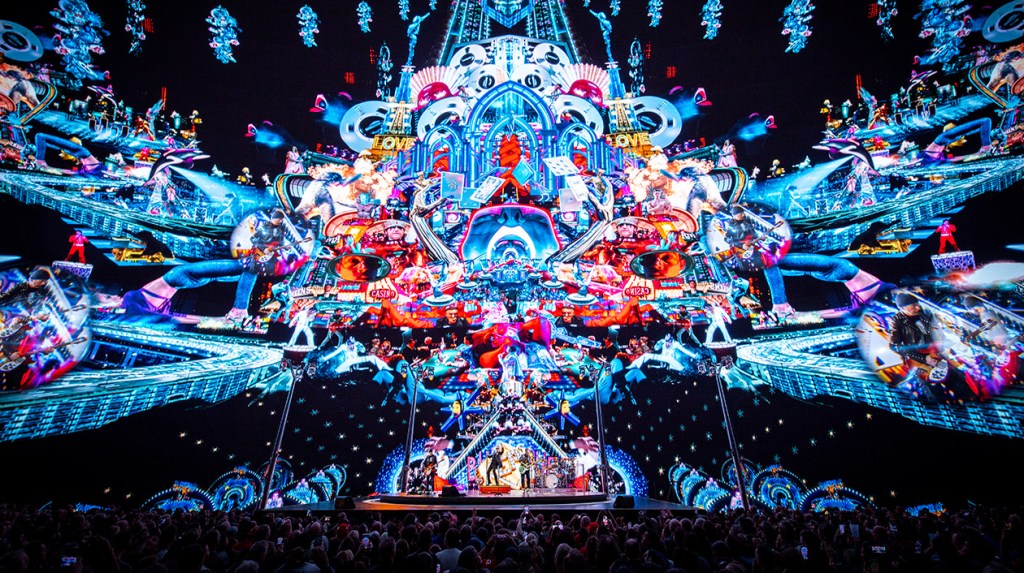There's no doubt that concert tickets are more expensive than ever, with prices rising faster over the past three years than at any previous time. Most of the big players in the concert industry have acknowledged the rapid double-digit growth since the end of the pandemic, but few agree on what's driving the price hike or whether the increase represents a real problem.
“It's like going to Disneyland on a really busy day and wondering, 'How can so many people afford to be here right now?' he says himself. Jed Weitzmanticket price specialist specializing in the concert industry. “Part of you wonders how a family of four can afford to be there, and yet clearly there's no shortage of people willing to pay to get in.”
This year, the average ticket price to see one of the top 40 highest-grossing tours of 2024 — playing arenas and stadiums — will cost fans $151, according to data compiled by Billboard Boxscore. Three years from now, in 2027, the average cost of such a tour ticket is on track to reach $200 due to steady year-over-year increases, so we can see the most demanding acts like U2The Weeknd, Sabrina Carpenter and Billy Joel.
Before the pandemic, the price of admission to a Top 40 concert had risen 3% to 4% annually, according to Billboard Boxscore. That number more than doubled when touring resumed, increasing by an average of 9.9% per year. A recent study by Torsten Schlockchief economist at Apollo Global Management, concluded that tickets were growing by about 11% annually.
Bulletin board
The reason for the price increase is less clear. Live Nation, the world's largest concert promoter, attributes the escalation largely to the inflationary cost of global business in 2024. It also argues that tickets to see superstar talent, whether it's Oasis, Beyoncé or Bruce Springsteen, have been undervalued long since image-conscious artists who don't want their fans to accuse them of high prices.
The problem with that argument, say U.S. Justice Department officials who have filed a landmark antitrust lawsuit against Live Nation, is that it ignores the structural advantages the megapromoter enjoys over nearly all of its competitors. The prices are rising, the government claims, because Live Nation can outbid its rivals by overpaying for touring talent and recouping its losses in concert promotion through its subsidiaries: venue ownership, Ticketmaster and sponsorships.
The government argues that by overpaying for talent, Live Nation is also passing those increased costs on to consumers through higher prices. The problem with that theory, many concert experts argue, is that it oversimplifies the economics of touring and lets the government get away with failing to implement the Better Online Ticketing Act, which was signed into law in 2016 to prevent the bulk purchase of tickets by scalpers using bots.
This failure to curb the illegal use of software and hacking tools – which lead to huge markups on the secondary market – these experts argue, has created a price crisis that has made it virtually impossible to access tickets on popular tours at face value. In a piece about StubHub's delayed initial public offering earlier this year, the longtime music analyst Chris Castle claimed that the wholesale use of bots to acquire and sell concert tickets “is not a theoretical antitrust case” but “engages in real-time massive consumer fraud” that is “perpetuated and funded by the public financial markets.”
WME agent Kirk Sommerwhose artist clients include Bruno Mars, The Killers, Adele and Hozier, says he knows what other artists charge for tickets, but fans tend to evaluate concerts on a case-by-case basis and are less concerned about price trends.
“I never focus on creating a tour price that will satisfy an artist's fans,” explains Sommer. “The goal is always to create a wide range of opportunities that fans of all income levels can purchase. It's important to have something for everyone.”
from our partners at https://www.billboard.com/pro/why-concert-tickets-so-expensive-top-tours-prices-gouging/
